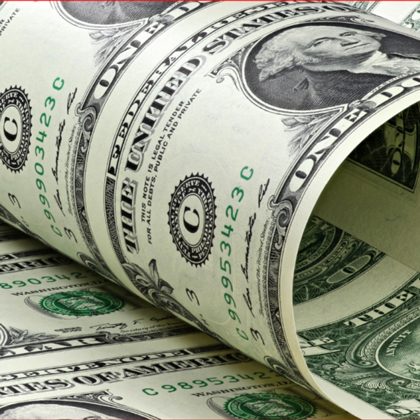How the pandemic and rescue packages are changing both corporate behavior and the dynamics of fixed-income markets.
*The pandemic is forcing many companies to prioritize growing cash levels and to favor reducing leverage rather than making share buybacks and paying dividends.
*A reduction in dividend income from equities might refocus investors’ minds on the benefits of contractual bond income.
*The latest US Federal Reserve fiscal package should help sustain the recent bond rally in the near term.
Covid-19 has already led to significant changes to the behavior of both companies and investors, which we would expect to carry on for some time, and to continue to have a profound impact on bond and equity markets over the coming months.
The economic challenge faced by companies amid an unprecedented global pandemic is immense, and greater than at any time since World War II. Many companies have switched away from a focus on maximizing shareholder value through share buybacks and dividends, to one by which they priorities keeping their businesses alive as they face significant reductions in cash flow; not all companies will manage to do so successfully.
Refocus on Contractual Income
For investors, the collapse in dividend payouts could refocus their attention on bond income which is contractual and therefore more stable. The economic uncertainty has raised the potential for bond downgrades and defaults, but at the same time, it has substantially raised the yield available on a broad universe of corporate bonds, thereby improving the income stream in the future.
Given the unprecedented hit to economic growth and public finances, we would expect to see the divergence of performance between investment-grade and high-yield bonds persist, notwithstanding the US Federal Reserve’s symbolic move to offer some support to ‘fallen angels’ (those investment grade-rated companies that have seen their bonds downgraded to high-yield status) and fixed-income ETFs (exchange-traded funds).
As we have argued many times, in terms of corporate-bond holders (and especially in the case of investment grade), there are two forces which shape the investment outcome: first, a company’s ability to maintain or improve its credit quality, and, second, its willingness to do so. This global pandemic and the economic damage that has ensued, mean the former is seriously compromised, but the latter is once again sharply in focus for company boards, as shown by the cutting of dividends and the building of cash levels, for example. In our view, this trend should broadly favor investment-grade bonds over shares.
Focus on Cash
This behavioral change by companies and investors to seek higher levels of savings to combat uncertainty as the virus’s impact slowly starts to dissipate, could persist for some time into the future. The reaction function of individuals and companies may also favor corporate debt over equity, while given the violence of the disruption to economic activity and incomes, we would expect individuals to build up more precautionary savings (statistics in the UK reveal that around 20% of the population have no savings at all, or less than enough to cover one month’s loss of income). Companies too, for a time at least, will want to have a larger cash buffer and less leverage, especially given that a second wave of the pandemic is quite possible later in the year.
Both of these developments are supportive of bond markets; the much greater resilience of corporate bond coupons compared to equity dividends may lead those dependent on income from investments, such as retirees and charities, to increase their allocation to credit.
For context, however, despite the extent of the economic damage so far wreaked by the pandemic, credit spreads did not get anywhere near those witnessed during the global financial crisis in 2008/2009, and have now recovered to close to the spreads seen at the height of the 2010-12 eurozone debt crisis. It is a similar story for high-yield bonds, with spreads slightly wider than during the third quarter of 2011, but less than half of their peak during the global financial crisis. Furthermore, the level of the yield is more important for high-yield than for investment-grade bonds, given that default rates are not positively correlated with government-bond yields. As of 19 April, high-yield bonds were yielding 8.0% versus their 10.2% peak in 2011/12, while for investment grade, the numbers are 2.6% and 4.0% respectively.
Bond Rally Has Legs…For Now
The latest US Federal Reserve (Fed) fiscal support package, combined with the more limited eurozone one, should give the bond rally some more legs, but, for three reasons, we would expect it to begin to fade if spreads come back in below 200 basis points:
- While the authorities want to avoid a collapse in credit, they do not want to inflate the bubble yet further; thus they have maintained the flexibility to taper/cease buying bonds (especially those of lower-quality credit risk) if it is not required. A good analogy here would be of a parent putting stabilizers on a child’s bike, not to stop them going faster, but to ensure that they don’t fall off and hurt themselves. The authorities will not have taken the decision to buy junk bonds lightly, nor are they ignorant of the risk of defaults (and the direct and identifiable costs to the public purse that would bring), so they will not buy at any price (unlike with government debt). It is worth noting that as of today (April 20), the Fed has still not bought any corporate bonds, giving weight to the idea that its intervention was more for the purposes of signaling a safety net, rather than an intent to buy up the market.
- The positive impact of quantitative easing will have to be weighed against the flood of precautionary supply of new corporate bonds, which are at a discount to secondary levels, as we have seen in investment-grade bonds, and may see in the high-yield market when it reopens.
- This asset-buying program has to be paid for somehow. We believe this is likely to manifest itself in massive quantities of competing government-bond supply, corporate credit-rating downgrades (which are already happening), and higher taxes/other squeezes on company profits which will affect interest cover and the cash available for paying down debts.
Any reference to a specific security, country or sector should not be construed as a recommendation to buy or sell this security, country or sector. Please note that strategy holdings and positioning are subject to change without notice
Important information
US - Text disclosure - NIM
This is a financial promotion. Issued by Newton Investment Management Limited, The Bank of New York Mellon Centre, 160 Queen Victoria Street, London, EC4V 4LA. Newton Investment Management Limited is authorized and regulated by the Financial Conduct Authority, 12 Endeavour Square, London, E20 1JN and is a subsidiary of The Bank of New York Mellon Corporation. 'Newton' and/or 'Newton Investment Management' brand refers to Newton Investment Management Limited. Newton is registered in England No. 01371973. VAT registration number GB: 577 7181 95. Newton is registered with the SEC as an investment adviser under the Investment Advisers Act of 1940. Newton's investment business is described in Form ADV, Part 1 and 2, which can be obtained from the SEC.gov website or obtained upon request. Material in this publication is for general information only. The opinions expressed in this document are those of Newton and should not be construed as investment advice or recommendations for any purchase or sale of any specific security or commodity. Certain information contained herein is based on outside sources believed to be reliable, but its accuracy is not guaranteed. You should consult your advisor to determine whether any particular investment strategy is appropriate. This material is for institutional investors only.
Personnel of certain of our BNY Mellon affiliates may act as: (i) registered representatives of BNY Mellon Securities Corporation (in its capacity as a registered broker-dealer) to offer securities, (ii) officers of the Bank of New York Mellon (a New York chartered bank) to offer bank-maintained collective investment funds, and (iii) Associated Persons of BNY Mellon Securities Corporation (in its capacity as a registered investment adviser) to offer separately managed accounts managed by BNY Mellon Investment Management firms, including Newton and (iv) representatives of Newton Americas, a Division of BNY Mellon Securities Corporation, U.S. Distributor of Newton Investment Management Limited.
Unless you are notified to the contrary, the products and services mentioned are not insured by the FDIC (or by any governmental entity) and are not guaranteed by or obligations of The Bank of New York or any of its affiliates. The Bank of New York assumes no responsibility for the accuracy or completeness of the above data and disclaims all expressed or implied warranties in connection therewith. © 2020 The Bank of New York Company, Inc. All rights reserved.






